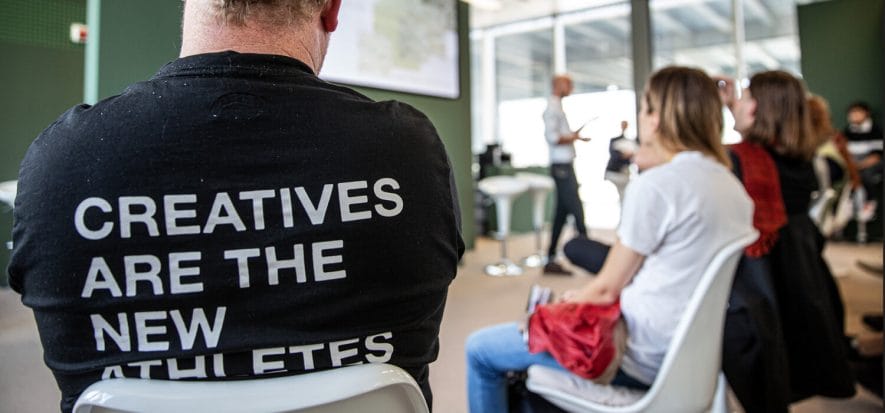Opening to new ideas, with other teams in the same brand, looking at new products coming from suppliers, opening to new sources of inspiration. Liz Alessi is Coach Material Development vice-President: she is the one who selects materials for the collections of accessories created by Tapestry group’s flagship brand. While addressing the audience at Lineapelle Innovation Square, she illustrated her plans to change the decision procedures of her own work team. “We usually participate in fairs, like this one, while wondering what kind of innovation we may set – she said -. Yet, rather inevitably, we keep playing within the boundaries of our expertise. That is why I think that we may achieve innovative accomplishments, with regard to technology applications, style and sustainability, only by activating some partnerships”. More specifically, the manager focuses on the industry spirit of collaboration: “We must spot a factual connection between innovation theory and activities carried out by brands: the aim is convey such result to final consumers – she pointed out -. Cooperation also implies sharing information and transparency: for the time being, so many different inputs may bring to confusion, therefore affecting the final market as well”.
A business model to review
LP Innovation Square arranged its own agenda while focusing on six topics, which are six development fields in the fashion industry. On the last meeting, various industry professionals had to outline an overview of the current situation alongside prospective tasks. “Innovation urges fashion players to review and revise their own business model – remarked Nicoline Van Enter, founder and creative director of The Footwearists platform -. At this point, we can no more implement innovation in a linear-based business model: the whole industry must turn circular”. Furthermore, brands are supposed to settle their own balance again. “In the last season, companies mostly budgeted their financial assets for marketing and communication – she added -. Now they must focus their attention back on products and processes”.
Training and customisation
However weird it may seem, disruption pertains to humanists. It is no coincidence that Daniele Gardini, Poltrona Frau senior R&D Leather Specialist, stressed the fact that his company, headquartered in the Marche, has been investing a lot in customisation. “We started more than ten years ago – he said -: at that time, it was not such a popular issue. We eventually developed a few ad hoc projects in collaboration with Ferrari. Now the activity engages all of our departments: even if it still does not account that much in our turnover, we are confident it will drive outstanding development opportunities in the future”. “We must focus on people again: after all, individuals are actually the focal point of customisation – remarked Andrea Lupo Lanzara, deputy chairman at Accademia Costume & Moda, Rome -. Such assumption applies to industry as much as professionals who deal with training. We have been focusing again on manufacturing and artisan work: made in Italy is the art of doing and finding solutions”.










